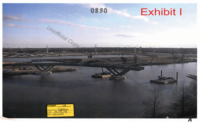Sticking to what you know is considered an important principle of engineering practice and license law. But what is the best measurement of competence? If the feedback on ENR’s Jan. 24 guest commentary is any indicator, engineers’ opinions about the matter are more varied than the criteria currently used to judge engineering expertise.
The commentary by Jon A. Schmidt, an associate structural engineer at Burns & McDonnell, Kansas City, Mo., addressed a new two-day exam for structural engineering, slated for an April rollout.
The National Council of Examiners for Engineering and Surveying, Seneca, S.C., is replacing its two eight-hour structural exams, Structural I and Structural II, with a single, two-day exam. The streamlined approach by NCEES will provide one exam that could be used by any state requiring a specialized structural license, even a state with high-seismic activity, a council official said.
Twenty-two states already require a two-day test for a structural license. Most will offer the new national exam as a courtesy, so structural engineers won’t have to leave their home states to take the test.
Quoting a study of human psychology known as the Dunning-Kruger effect, Schmidt wrote that human beings “tend to hold overly favorable views of their abilities in many social and intellectual domains.” Discipline-specific technical exams could eliminate the subjective self-assessments of competence that are part of license law.
“Engineers should no longer be expected to evaluate their own competence and practice accordingly; instead, they should be required to remain strictly within the scope of the examination that they passed to become licensed.”
Then came the replies on ENR.com. “The flaw in these licensing laws is that [they] start from an assumption that all engineers are competent and ethical, so therefore we have nothing to worry about,” one reader wrote.
“I have a simple self-test,” wrote another engineer. “If I have to spend more time figuring out how to look up the information to do the work than actually do it, I am probably not competent. I am definitely not competent enough to do it at a profit.” Another respondent asked what would be the cost-benefit of the test. “Passing a test... at the start of your profession does not make you competent; practice and experience does.”
One engineer who passed the P.E. exam in Wisconsin a year ago wondered if he would have to take tests to become licensed in various subdisciplines. “I passed the civil construction P.E. on the first try with about 10 minutes of study. I would also be able to pass the civil transportation, water and environmental. I consider myself an expert in none of these categories but dabble in all of them.”
Another reader questioned the significance of testing as a guarantee of quality engineering, saying, “How many engineers do we all know that passed the test on the first try and are horrible engineers? The ability to pass the test no matter how long will never substitute for proper training in an office under qualified engineers.” For more comments or to add your own, go to ENR.com.




